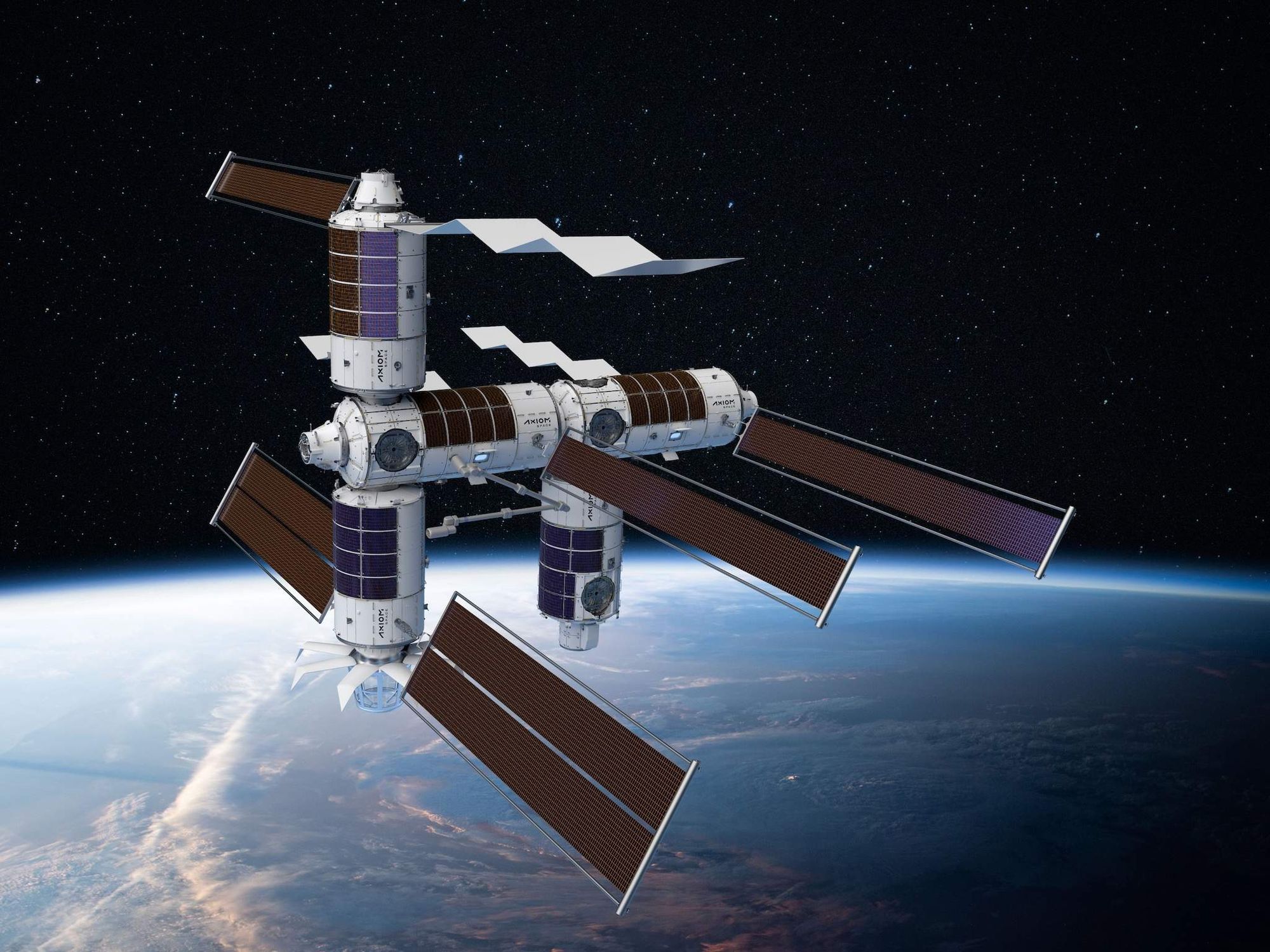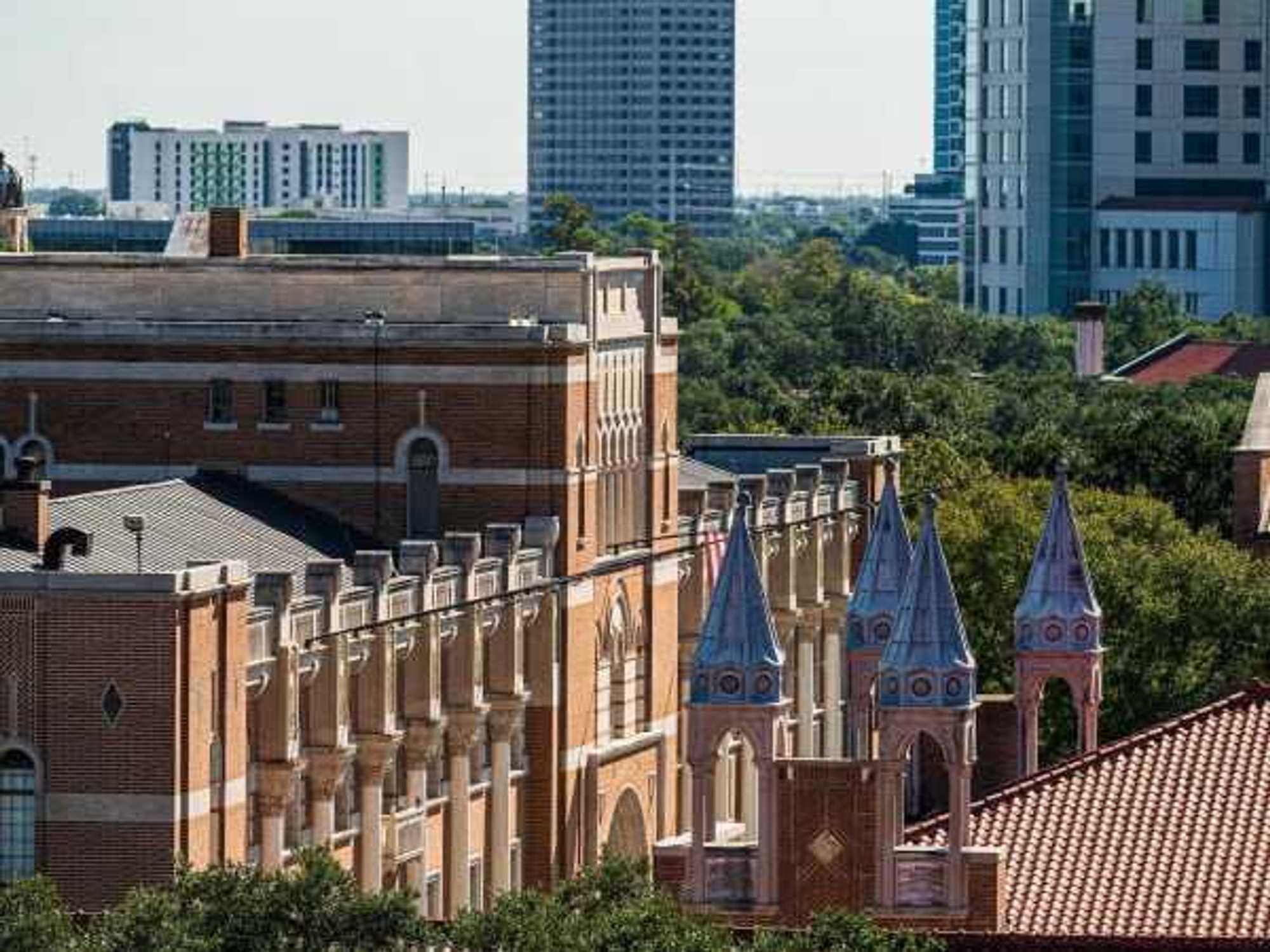new NASA partnership
Houston company accelerates plans to launch first commercial space station

A rendering illustrates the future Axiom Station.
Houston-based Axiom Space is accelerating its development of a commercial space station.
NASA awarded Axiom a contract in January 2020 to develop a space station for commercial use. Initially, the station was supposed to be attached to the International Space Station. Later, it was supposed to become a free-flying space station in low-earth orbit before retirement of the current space station in 2030.
In coordination with NASA, Axiom Space has modified the plan.
Initially, Axiom planned to attach its first module, Habitat 1, to the space station, followed by three additional modules. Under the new scenario, the payload, power, and thermal modules will be launched first. This will enable the modules to join the current space station as early as 2028, becoming a free-flying station called Axiom Station.
“The International Space Station has provided a one-of-a-kind scientific platform for nearly 25 years,” says Dana Weigel, manager of the International Space Station program at NASA’s Johnson Space Center.
“As we approach the end of [the] space station’s operational life," she continues, "it’s critically important that we look to the future of [low-earth orbit] and support these follow-on destinations to ensure we continue NASA’s presence in microgravity, which began through the International Space Station.”
In free flight, Axiom will continue assembling the commercial destination, adding the Habitat 1 module, an airlock, the Habitat 2 module, and a research and manufacturing lab.
“We were ready to answer the call when NASA asked us to relook at our space station development plan,” Mark Greeley, Axiom Space COO and Axiom Station program manager, says in a statement from Axiom. “Our ongoing assessment of the assembly sequence revealed opportunities for flexibility and enhancements. With the International Space Station needing to protect for the ability to accommodate a deorbit vehicle on station, we were able to accelerate this work to support the program’s requirements.
“NASA has been extremely collaborative and supportive of the new plan as it addresses its deorbit operational concerns and preserves critical capabilities currently utilized on the International Space Station,” he adds. “This revised approach not only aligns with U.S. objectives but also delivers immediate value for our customers and investors.”
The Axiom's Payload Power Thermal Module primary structure is being constructed by Thales Alenia Space in Turin, Italy, and then moved to Houston by fall 2025, where the rest of the internal structure and systems will be integrated at Axiom Space facilities.
“Working with leading experts like Thales Alenia, who have a proven record in module development and a strong relationship with NASA, is integral to our operations and vision," Tejpaul Bhatia, Axiom Space chief revenue officer, says.
“By engaging and integrating with a network of partners from around the world, we access cutting-edge technologies and innovative solutions that enhance our capabilities and supply chain,” Bhatia adds. “Our customer base is truly global, including governments, private entities, and research institutions. This diversity enables us to meet a wide range of needs and reinforces our belief that space exploration is a collective endeavor for the benefit of all of humanity.”
---
The story originally was published on our sister site, InnovationMap.
